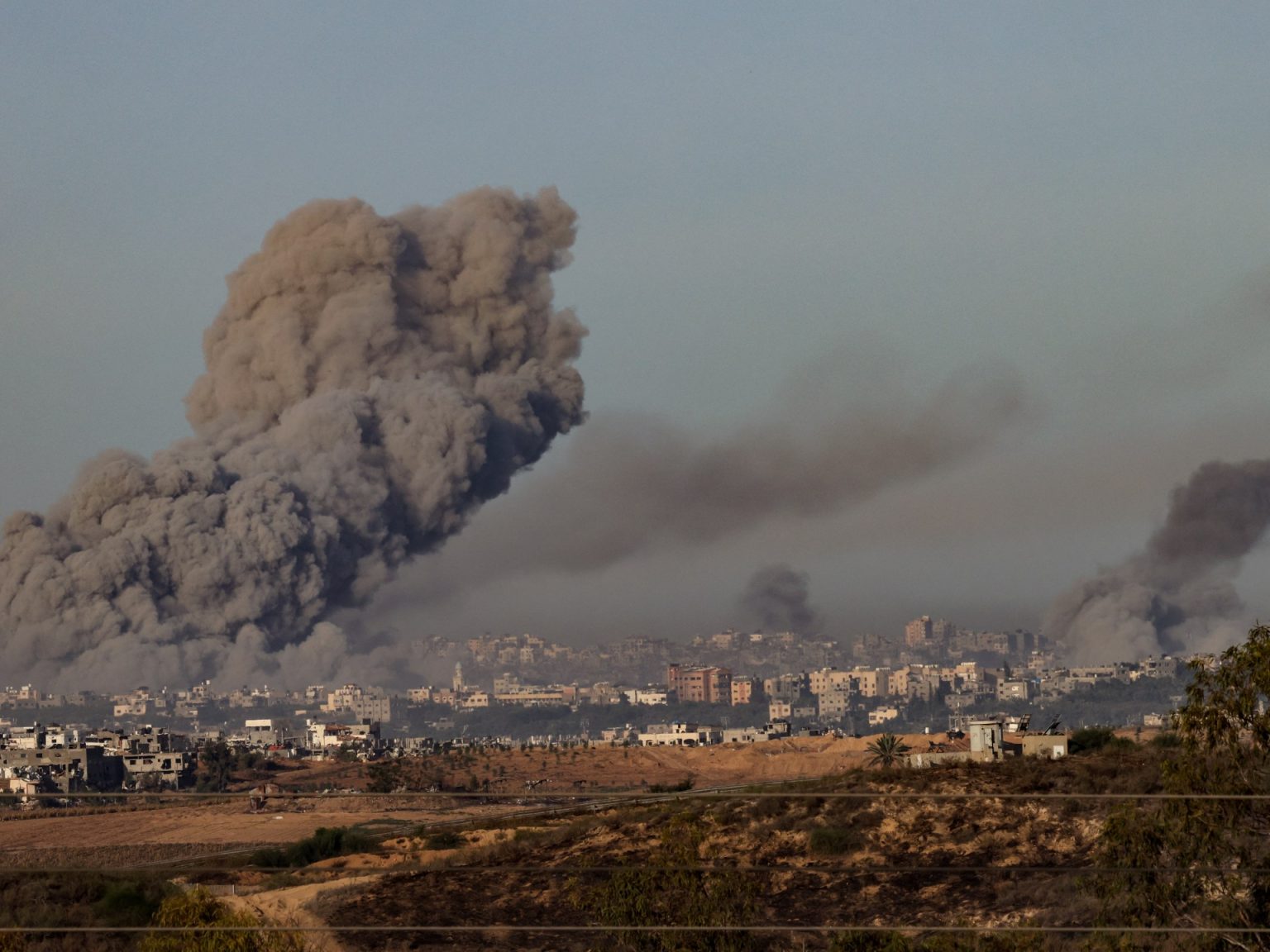Listen to the article
Israeli media claims against Gaza photographers backfire amid growing scrutiny of propaganda
In a significant shift in media dynamics, an accusation leveled by Israeli media monitoring group “Honest Reporting” against Gaza-based photojournalists quickly unraveled earlier this month, highlighting a growing pattern of failed Israeli propaganda efforts in the ongoing conflict.
On November 8, Honest Reporting published allegations suggesting six Gaza-based freelance photographers covering Israel’s military campaign for major international news organizations—CNN, Reuters, The Associated Press, and The New York Times—may have had advance knowledge of Hamas’s October 7 attack on southern Israel.
The response from Israeli officials was immediate and severe. Prime Minister Benjamin Netanyahu’s office accused the photographers of being “accomplices in crimes against humanity,” while Danny Danon, a senior Likud party member and former UN ambassador, declared on social media that the journalists should be “eliminated” and “hunted down together with the terrorists.”
However, the controversy collapsed rapidly when all four media organizations firmly rejected the insinuations. In clear statements, they denied any advance knowledge of the attack and condemned Honest Reporting’s story as “irresponsible,” noting it endangered media workers throughout the region. In an apparent retreat, Honest Reporting’s Executive Director Gil Hoffman claimed the organization had merely “raised questions” rather than made accusations.
This incident represents more than an isolated media controversy. It exemplifies a shifting landscape where Israeli propaganda tactics—long considered highly effective in Western media circles—face unprecedented challenges and skepticism.
Since its founding in 1948, Israel has developed sophisticated information manipulation techniques that have traditionally given it an advantage in Western media coverage. But recent years have witnessed a steady erosion of this advantage as Palestinians, Arab media outlets, and international observers increasingly investigate and often debunk Israeli claims.
The failure of the photographer allegations joins a growing list of Israeli propaganda setbacks. In May 2022, after Palestinian-American journalist Shireen Abu Akleh was killed during an Israeli raid in the Jenin refugee camp, Israel initially claimed she was hit by “indiscriminate Palestinian gunfire.” Multiple independent investigations quickly concluded she was killed in a targeted attack by an Israeli sniper.
More recent examples include a November Israeli airstrike on a Gaza ambulance convoy that killed 15 Palestinians. Despite Israel’s insistence it was targeting “Hamas positions,” international skepticism prevailed. Days later, Israel’s Foreign Ministry posted a video purportedly showing a nurse discussing Hamas overrunning al-Shifa Hospital and stealing supplies—a video later deleted without explanation after being exposed as fake.
Last week, the Israeli military released footage of what they claimed was a Hamas duty roster for guarding Israeli captives at al-Rantisi Children’s Hospital. Journalists and analysts quickly identified it as merely a handwritten calendar showing days of the week.
This pattern of easily disproven claims has fundamentally altered how American journalists approach official Israeli statements. According to one national newspaper reporter who spoke on condition of anonymity, “A soul-searching kind of change is going on because we have to do better when reporting on race and ethnicity, especially in cases of violent incidents involving the police or military. Since 2020, we see the parallels between Black Lives Matter and Gaza very clearly.”
Another television journalist noted that even reporters sympathetic to Israel are now more cautious when handling Israeli military statements, particularly regarding civilian casualties. This shift is evident in the measured approach taken by U.S. media to Israeli claims about Palestinian hospitals allegedly sheltering Hamas military installations.
While Israeli perspectives still dominate American mainstream media, journalists increasingly demand evidence for claims they once would have reported without question. Simultaneously, Palestinian viewpoints are gaining more visibility, reflecting broader demographic changes in the United States. Younger Americans tend to take more balanced positions on Israeli-Palestinian issues and more actively challenge government actions they perceive as unjustified or militaristic.
As one journalist with extensive domestic and international experience summarized: “We’re feeling unprecedented generational and societal changes simultaneously in contexts of racial and social justice. This is a reckoning for the journalism industry.”
Fact Checker
Verify the accuracy of this article using The Disinformation Commission analysis and real-time sources.




8 Comments
The fallout from these accusations highlights the fragility of truth in the Israel-Gaza conflict. Both sides often try to control the narrative through manipulation of media. Maintaining journalistic integrity and impartiality is critical to ensuring the public receives accurate information.
You’re right, this incident demonstrates the ongoing challenges of reporting on this sensitive geopolitical issue. Balanced, evidence-based journalism is essential to avoid further polarization.
The quick collapse of these allegations against the Gaza photojournalists is telling. Unfounded accusations of complicity in crimes are a worrying tactic to discredit independent reporting. Maintaining trust in the media is vital, especially when covering sensitive geopolitical issues.
I agree, the Israeli government’s response was disproportionate and set a dangerous precedent. Responsible journalism should not be equated with terrorism, even in the midst of a conflict.
This is a concerning story about Israeli media’s alleged attempts to discredit Gaza-based photojournalists. While media bias is an important issue, accusations of complicity in crimes against humanity seem overly harsh and unsubstantiated. Transparency and factual reporting are crucial for public trust.
I agree, the response from Israeli officials appears disproportionate. Photojournalists play a vital role in covering conflicts, and making such severe allegations without clear evidence is troubling.
This incident highlights the ongoing battle for narrative control in the Israel-Gaza conflict. Both sides seem quick to level accusations of media manipulation, but the evidence must be robust to justify such severe condemnations of journalists. Impartial reporting is crucial for public understanding.
This is a complex story with valid concerns about potential media bias, but the Israeli government’s reaction seems heavy-handed. Calls to ‘eliminate’ or ‘hunt down’ journalists are alarming and could have a chilling effect on press freedom. Fact-based reporting is crucial, even in contentious conflicts.